
Fertilizer Industry News Roundup
Yara International has approved a project to partly convert its Pilbara plant near Karratha in Western Australia to green ammonia production.

Yara International has approved a project to partly convert its Pilbara plant near Karratha in Western Australia to green ammonia production.
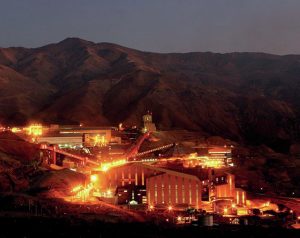
In its final report on the June 2019 explosion and fire at Philadelphia Energy Solutions in southwest Philadelphia, the US Chemical Safety Board has said that US refineries need to strengthen their safeguards surrounding the use of hydrofluoric acid, and has also recommended that the US Environmental Protection Agency take steps to improve its oversight of the chemical, which is used as an alkylation agent.
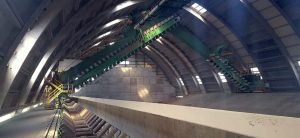
At the organisation’s first face to face meeting since covid, in Vienna in early October, OPEC+ ministers agreed to cut global oil supplies by 2 million bbl/d in November. OPEC+ is a group of 24 oil-producing nations, made up of the 14 members of the Organisation of Petroleum Exporting Countries (OPEC), and 10 other non-OPEC members, including Russia. In a statement, the group said the decision to cut production was made “in light of the uncertainty that surrounds the global economic and oil market outlooks.”
Maersk has ordered six more 17,000 teu (twenty-foot equivalent unit) container ships capable of running on methanol from Hyundai Heavy Industries (HHI). The order brings Maersk’s total order book of dual-fuel vessels capable of running on methanol to 19. Maersk said the new ships will replace existing tonnage in its fleet when they’re delivered in 2025. When all 19 vessels on order join the fleet and replace older tonnage, CO2 savings will be around 2.3 million t/a, according to Maersk. Maersk has committed itself to renewable methanol as a pathway to zero emissions shipping. Its first vessels are due for delivery from Q1 2024. The company has also signed several green methanol fuel supply agreements and joined a partnership to create the first e-methanol plant in Southeast Asia. Maersk is also working with Japanese trading house Mitsui and the American Bureau of Shipping (ABS), to jointly conduct a detailed feasibility study of methanol bunkering logistics in Singapore.
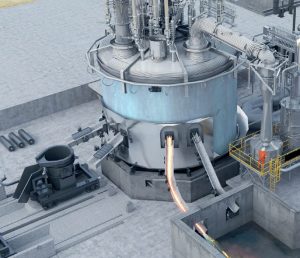
Maire Tecnimont’s innovation and licensing company Stamicarbon has been selected as the licensor for a urea project in sub-Saharan Africa, its first license in the region. Stamicarbon will deliver the process design package for the front-end engineering and design for a 4,000 t/d urea melt and granulation plant. The urea melt plant with a pool reactor will use Stamicarbon’s MP Flash design, a melt concept with improved energy efficiency, entailing a significant reduction of steam consumption. The minimal equipment items result in a significant reduction of the footprint and the overall capital cost of the plant. Less equipment also allows for a reduction in maintenance costs and OPEX savings.
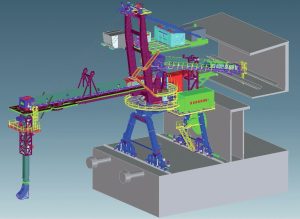
A record rise in gas prices at the end of August triggered a spate of ammonia production curtailments across Europe. These included major shutdown announcements from CF Fertilisers UK, Grupa Azoty, Yara International and others.
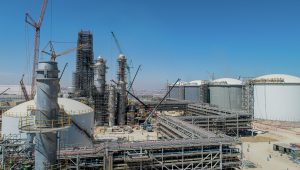
Saudi Arabia’s Ras Al-Khair Industrial City has signed an industrial land agreement with local firm Gulf Copper to develop a copper smelting and casting plant at an investment $319.30 million. The project would be developed on a plot spanning more than 250,000 square metres in the industrial city. No construction timelines were given. The Saudi government has previously signed agreements with Trafigura and Saudi-based Modern Mineral Holding to develop a 400,000 t/a copper smelter at Ras Al Khair which would also include 200,000 t/a of zinc and 55,000 t/a of lead smelter capacity at a projected cost of $2.8 billion.

CF Fertilisers UK is to permanently close its fertilizer production site at Ince in north west England with the potential loss of 238 jobs.
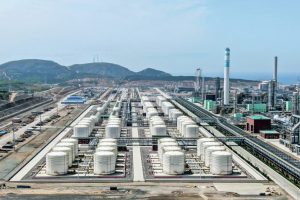
Chinese refinery output has been steadily falling this year as covid-related lockdowns impact upon the economy. Figures from the National Bureau of Statistics showed that refinery output fell to 13.8 million bbl/d in April – down 2% year on year – then took a sharp fall in May to 12.6 million bbl/d, more than 10% down on the same time in 2021, when output stood at 14.1 million bbl/d. May’s figure was 12.7 million bbl/d, a modest increase on April, but still 1.6 million bbl/d down compared to May 2021. Refining margins have also been hurt by high oil prices due to the Ukraine conflict, dropping close to zero or even negative according to industry estimates.
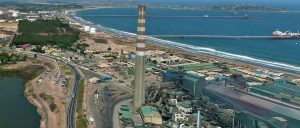
At the end of June a three day strike among workers at Chilean state mining company Codelco paralysed copper output at the world’s largest copper producer. The strike was in protest at the threatened closure of the Ventanas smelter, which was the site of an alleged leak of sulphur dioxide on June 6th. Chile’s environmental regulator subsequently provisional measures for both Codelco and power company AES Chile after numerous people in the nearby towns of Quintero and Puchuncavi in central Chile, including hundreds of high school students and staff, showed signs of sulphur dioxide poisoning. The measures include the installation of a new temperature sensor to measure potential thermal inversions. Both companies have denied responsibility for the leak; Codelco says that its air quality stations recorded normal levels of SO2 during the time of the incident.